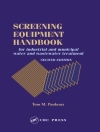Maximize your water harvesting potential with efficient, cost-effective earthworks
In the face of drought and desertification, well-designed, water harvesting earthworks such as swales, ponds, and dams are the most effective way to channel water into productive use. The result can be increased food production, higher groundwater levels, reduced irrigation needs, and enhanced ecosystem resilience.
Yet, due to a lack of knowledge, designers, and landowners often build earthworks that are costly, inappropriately sized and sited, or even dangerous. The Permaculture Earthworks Handbook is the first dedicated, detailed guide to the proper design and construction of water harvesting earthworks. It covers the function, design, and construction methods for nine main types of water harvesting earthworks across a full range of climates.
Coverage includes:
- Swales, ponds, dams, hugelkultur, net-and-pan systems, spate irrigation, and more
- Cost versus benefit of different earthworks
- Assessing site needs and suitability
- Soil types and hydrology
- Designing for maximum efficiency and lowest cost
- Risk assessment and safe construction
- Stacking functions and integrating earthworks into a design
This practical handbook is the essential resource for permaculture designers, teachers and students, landowners, farmers, homesteaders, landscape architects, and others involved in maximizing the water harvesting potential of any landscape at the lowest cost and impact.
Douglas Barnes is a permaculture designer trained in Australia by Bill Mollison and Geoff Lawton. He has designed and built earthworks in North America, Japan, and Andra Pradesh, India. He lives in Tweed, Ontario in a passive solar house he designed and built, and he blogs at permaculturerelections.com.
表中的内容
Introduction
1. The State of Water
The Colorado
The Aral
Talupula
Worldwide
Spread of deserts
War and conflict
Where there is hope
Just add water!
References
2. A Look at the Past
Petra
References
3. How Water Moves in the Environment
The hydrological cycle
The path of water
Hydrology 101
The layout of landscapes
References
4. Designing for the Whole Environment
Permaculture and sustainability
The design process
Permaculture strategies
Source to sink
Reading the land
The potential for overharvesting
Permitting and legal restrictions
Working with crews
References
5. Elements of Design and Implementation
Rain volumes
Climate effects
Temperate climates
Tropical climates
Coral atolls
Drylands
Decoupling catchments
The path of water
Soil
Slope stability
Finding contour
Laser level
Farmer’s level
Builder’s level
Water level
A-Frame
LIDAR
Mapping
Determining slope
Earthmoving machines
Types of machines
Bulldozers
Excavators
Loaders
Backhoes
Compactors
Safety
Topsoil and erosion
References
6. Water Storage Techniques
Ponds
Cisterns
Dams
References
7. Interception Techniques
Swales
Case Study: The Green Tree Foundation swales project
Bench terraces
Land imprinters
Trees
Spate irrigation
Diversion drains
References
8. Applying Permaculture Strategies
Goal setting, planning, adjusting
Zone planning
Sector planning
Stacking functions and functional connectivity
Variations in structure and shape
Flow
Efficiency
Where to start
Case Study: Circle Organic ridge point dam
References
9. Cautions
The dynamics of slides
The role of water
Sensitive clays
Landslide triggers
Post-slide treatment
What went wrong at Aberfan?
References
Appendices
1. Calculating Areas and Volumes
2. Calculating Runoff Volumes
3. Finding Slopes and Heights
4. Swale Spacing
5. Terracing
6. Costing Earthworks
Index
About the Author
About New Society Publishers
关于作者
Douglas Barnes is a permaculture designer and trainer who specializes in rainwaterharvesting earthworks. Douglas has an interest in complexity theory and systems ecology, educational design and rock climbing. He lives in Tweed, Ontario in a passive solar house he designed and built.












